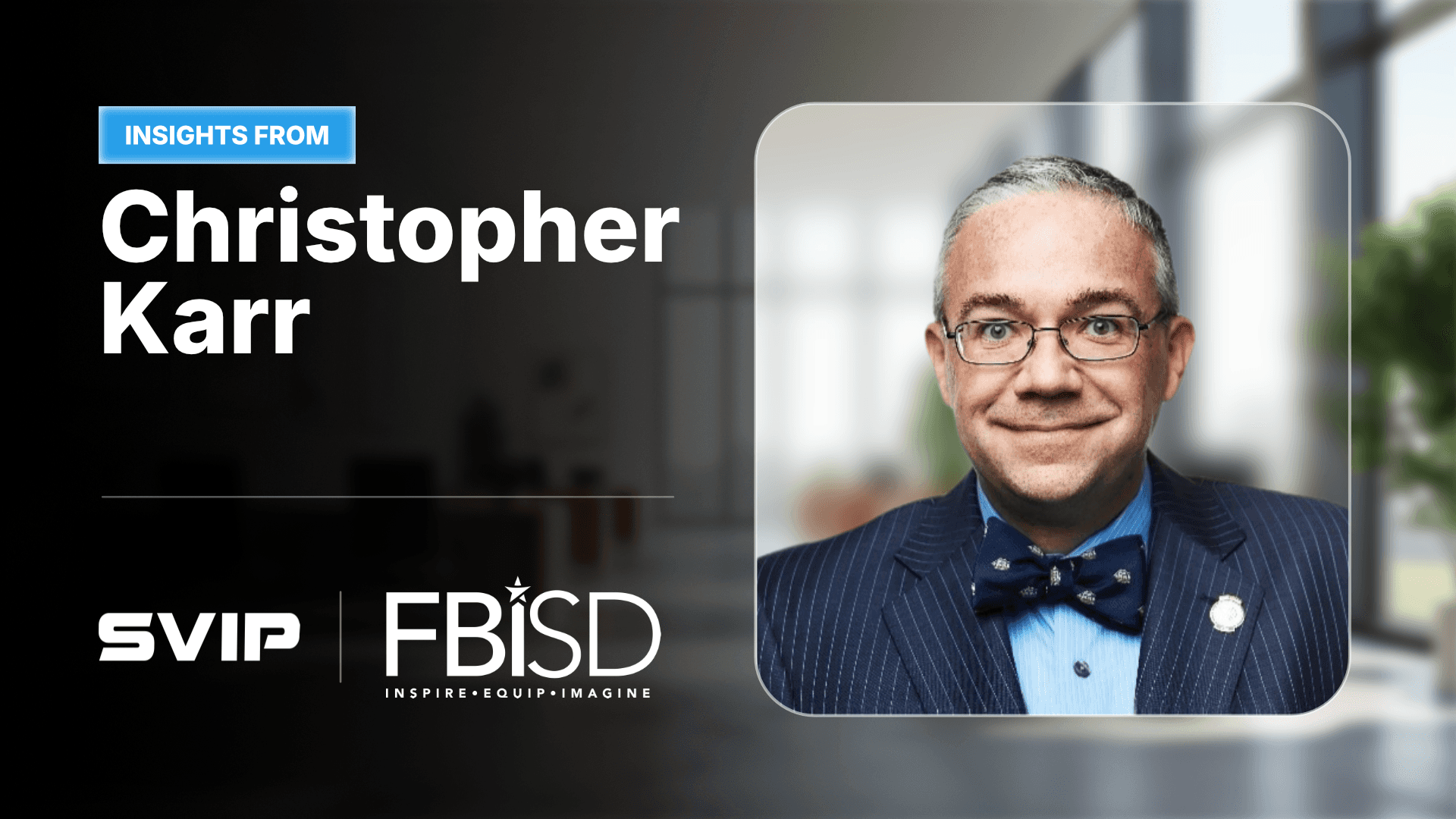Christopher Kar, Information Security Advisor at Fort Bend Independent School District (ISD) in Texas, is at the forefront of educational cybersecurity. With over two decades of experience spanning healthcare, local government, and education, Kar brings a measured, strategic, and people-first approach to securing the digital and physical infrastructure of a district that serves more than 85,000 students and staff.
From Enterprise to Education: A Pragmatic Shift
Kar’s transition into K–12 education was driven by purpose. “I’ve worked in environments where patient data and critical infrastructure were on the line,” he’s shared. “But nothing quite matches the responsibility of protecting student data and ensuring learning isn’t disrupted.” His enterprise-level experience equips him with a valuable perspective: security must be frictionless, resilient, and adaptable to evolving threats.
The Human Firewall
While tools and technologies are critical, Kar believes the most powerful layer of defense is the human one. “We train for awareness, but more importantly, we train for behavior,” Kar said in a recent SVIP LIVE interview. Under his leadership, Fort Bend ISD has implemented regular phishing simulations, staff training, and administrative briefings to reduce risk at every level of the organization.
“We want to make sure security isn’t just something we do—it’s part of the district culture,” Kar emphasized. This includes fostering collaboration between IT and other departments, encouraging early reporting of suspicious activity, and building a clear incident response framework.
Zero Trust, Practical Application
Kar is a strong advocate of Zero Trust Architecture—a modern cybersecurity model that assumes no internal or external actor is inherently trustworthy. But he cautions against buzzword-driven security plans. “Zero Trust is not a product—it’s a philosophy,” he explained. “It's about validating every access request, building segmented networks, and ensuring systems talk only to what they need to.”
He works closely with Fort Bend’s integrators and vendors to enforce this mindset across endpoints, cloud apps, and physical infrastructure. "We're not just buying boxes—we're buying partnerships," Kar said. That strategic alignment with vendors is critical for scaling secure, cost-effective solutions.
Balancing Security and Learning
Kar’s approach respects the unique needs of educational environments, where overly rigid controls can disrupt instruction. “The last thing we want is for teachers to feel like IT is a blocker,” he said. His team prioritizes security measures that are transparent to users—like automated patching, endpoint detection, and access controls that run silently in the background while safeguarding the environment.
This balance is especially important in an era of 1:1 device programs, hybrid learning, and cloud-native applications. “Education doesn’t pause for security—but that doesn’t mean we pause security either.”
Metrics That Matter
Kar’s philosophy is firmly rooted in measurable outcomes. He evaluates success not just by how many attacks are blocked, but how effectively the district can respond and recover. “It’s not just about prevention—it’s about resilience,” he said. Every incident, whether real or simulated, becomes a teaching moment, helping fine-tune response playbooks and training protocols.
He also tracks user behavior trends, integrates feedback from educators, and benchmarks against industry frameworks like NIST and CIS controls to keep Fort Bend ahead of the curve.
Looking Ahead: Future-Proofing Fort Bend
With cyberattacks on school districts rising sharply—including ransomware, phishing, and denial-of-service attacks—Kar is laser-focused on the future. His priorities include expanding threat intelligence sharing, strengthening endpoint and identity protection, and working with state and federal partners to bolster resources.
But for Kar, the most important part of the job is trust*. “We protect data, but we also protect trust—trust from students, staff, and the community,” he said.
Final Thoughts
Christopher Kar’s work at Fort Bend ISD shows that cybersecurity in education isn’t just about blocking threats—it’s about enabling safe, uninterrupted learning. Through a blend of technical precision, strategic foresight, and human-centered leadership, he’s building a model that school districts across the country can look to.
Catch Christopher Kar's full SVIP LIVE interview here
Do you have insights to share? Contact us here.













